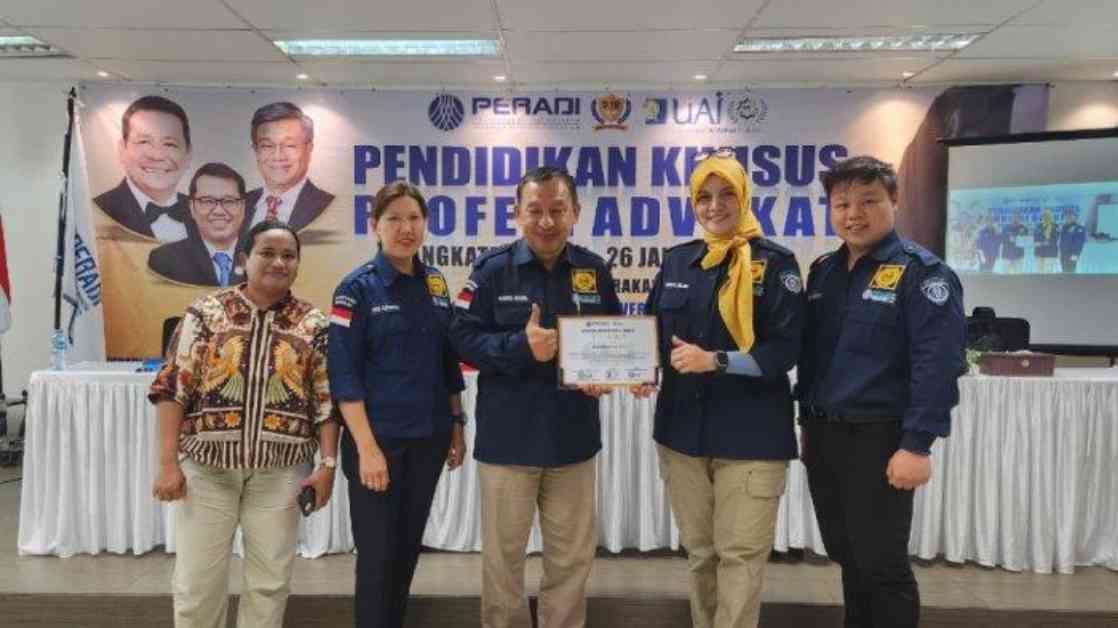Providing Free Legal Assistance: The Importance of Adhering to Ethical and Professional Codes
Andris Basril, the Treasurer of the Legal Aid Center (PBH) of the Indonesian Advocates Association (Peradi), has issued a crucial reminder to lawyers about the significance of maintaining ethical standards while offering legal services, even when it comes to pro bono assistance.
During the Special Professional Training for Advocates (PKPA) Class V held online by the West Jakarta Peradi Branch (Jakbar) in collaboration with the University of Al Azhar Indonesia (UAI), Andris emphasized the enforcement of ethical codes in providing pro bono legal services.
Importance of Ethical Compliance in Pro Bono Services
Andris highlighted that although pro bono work is unpaid, lawyers must still adhere to professional standards and ethical codes. He cautioned against a careless approach in delivering pro bono services and mentioned that there are sanctions in place for lawyers who breach ethical codes in their duties. Clients who feel neglected by lawyers during pro bono work can report them to the Peradi Ethics Council.
Moreover, Andris elaborated on the clear procedures outlined by the National Board of Peradi for imposing ethical sanctions on lawyers who fail to fulfill their obligations when providing pro bono services.
Enforcing Ethical Standards for Professionalism
Sharing a personal anecdote, Andris recounted being reported for alleged ethical violations while conducting pro bono work at the PBH Peradi. After due process, the Ethics Council found no wrongdoing on his part, affirming that he had followed the prescribed procedures diligently.
He emphasized that ethical enforcement is a cornerstone of Peradi’s commitment to upholding the professionalism of its members. Every report from the public is processed impartially, demonstrating that no one is above scrutiny within Peradi.
Legal Obligations and Commitment to Justice
Andris reminded future advocates undergoing PKPA training to adhere to legal regulations when providing pro bono legal assistance to the less fortunate. He stressed that the duty of lawyers to offer pro bono services is governed by various regulations, including Article 22 of Law Number 18 of 2003 on Advocates, Peradi Decree Number 16 of 2009, and Peradi Regulation Number 1 of 2010.
In conclusion, Andris underlined the necessity of delivering pro bono legal aid with the same care and attention as cases with monetary compensation. He affirmed that it is the responsibility of advocates to ensure that everyone, especially the underprivileged, has access to justice.
By consistently upholding ethical codes and professional principles, Peradi showcases its dedication to maintaining public trust in the legal profession. Every advocate within the organization is expected to discharge their duties with integrity and excellence, even in pro bono cases, as part of their social responsibility as legal guardians.






















